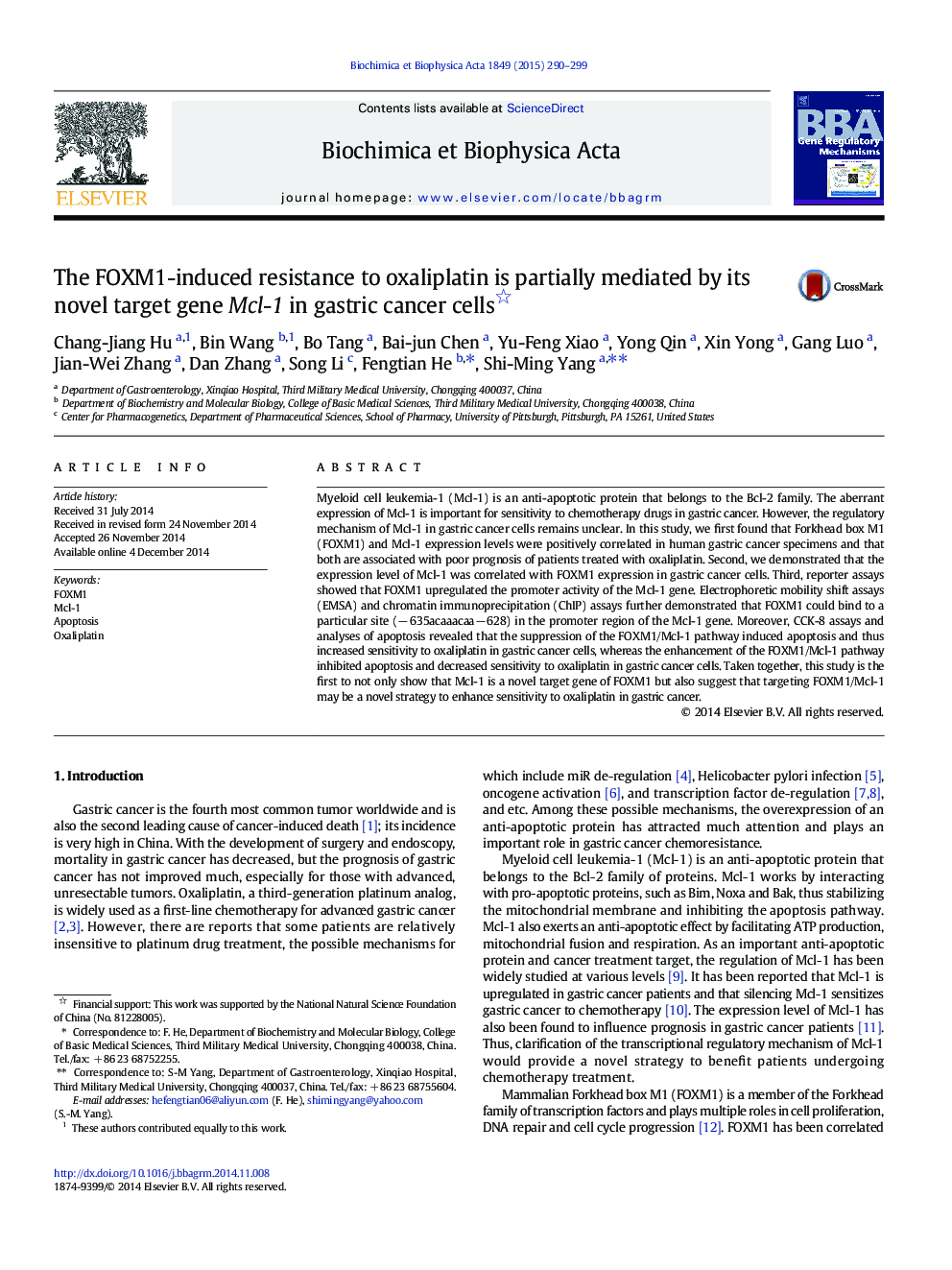| Article ID | Journal | Published Year | Pages | File Type |
|---|---|---|---|---|
| 10799037 | Biochimica et Biophysica Acta (BBA) - Gene Regulatory Mechanisms | 2015 | 10 Pages |
Abstract
Myeloid cell leukemia-1 (Mcl-1) is an anti-apoptotic protein that belongs to the Bcl-2 family. The aberrant expression of Mcl-1 is important for sensitivity to chemotherapy drugs in gastric cancer. However, the regulatory mechanism of Mcl-1 in gastric cancer cells remains unclear. In this study, we first found that Forkhead box M1 (FOXM1) and Mcl-1 expression levels were positively correlated in human gastric cancer specimens and that both are associated with poor prognosis of patients treated with oxaliplatin. Second, we demonstrated that the expression level of Mcl-1 was correlated with FOXM1 expression in gastric cancer cells. Third, reporter assays showed that FOXM1 upregulated the promoter activity of the Mcl-1 gene. Electrophoretic mobility shift assays (EMSA) and chromatin immunoprecipitation (ChIP) assays further demonstrated that FOXM1 could bind to a particular site (â 635acaaacaaâ 628) in the promoter region of the Mcl-1 gene. Moreover, CCK-8 assays and analyses of apoptosis revealed that the suppression of the FOXM1/Mcl-1 pathway induced apoptosis and thus increased sensitivity to oxaliplatin in gastric cancer cells, whereas the enhancement of the FOXM1/Mcl-1 pathway inhibited apoptosis and decreased sensitivity to oxaliplatin in gastric cancer cells. Taken together, this study is the first to not only show that Mcl-1 is a novel target gene of FOXM1 but also suggest that targeting FOXM1/Mcl-1 may be a novel strategy to enhance sensitivity to oxaliplatin in gastric cancer.
Keywords
Related Topics
Life Sciences
Biochemistry, Genetics and Molecular Biology
Biochemistry
Authors
Chang-Jiang Hu, Bin Wang, Bo Tang, Bai-jun Chen, Yu-Feng Xiao, Yong Qin, Xin Yong, Gang Luo, Jian-Wei Zhang, Dan Zhang, Song Li, Fengtian He, Shi-Ming Yang,
